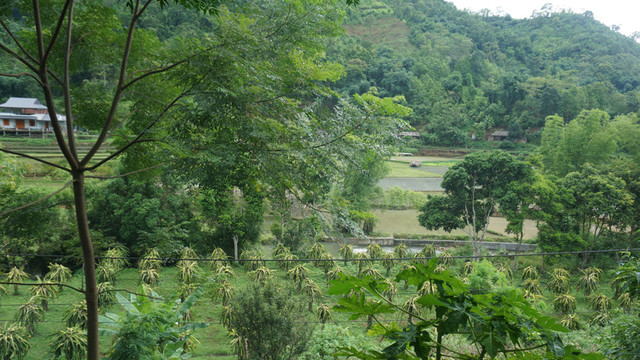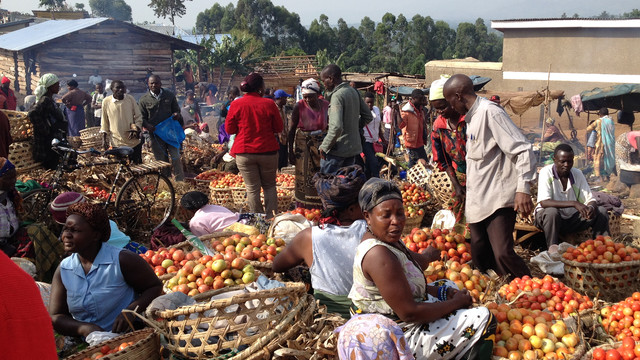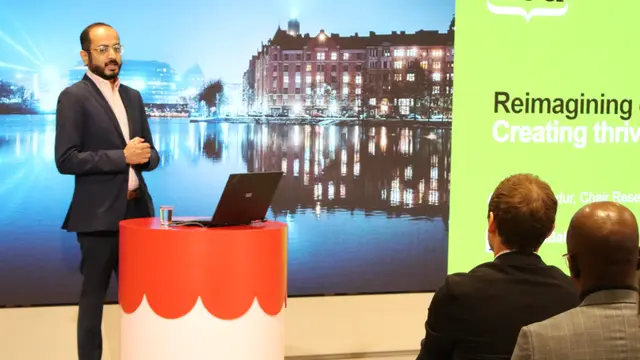IIED at London Climate Action Week 2023
Throughout London Climate Action Week 2023, IIED and partners hosted and participated in a range of key events. This page provides more details

Painting by UK artist Banksy that says "I don't believe in global warming" on London's Regent's Canal (Photo: Crispin Cresswell via Flickr, CC BY-NC-ND 2.0)

London Climate Action Week (LCAW) 2023 brought together world-leading climate professionals and communities from across London and the globe, to find practical solutions to climate change. It took place from 24 June to 2 July.
Throughout the week IIED and partners hosted and participated in digital, in-person and hybrid events falling under the theme of delivering fair inclusive and just climate transitions.
Events
Monday, 26 June
Challenges to 2030: How to finance a climate-secure, sustainable society
In-person, at the Grow to Zero conference (££)
Venue: Kings Place, 90 York Way, London N1 9AG
IIED executive director Tom Mitchell joined this plenary discussion at day one of the two-day Grow to Zero conference in London. Trillions are needed for a just transition that supports a secure climate and an equitable, sustainable society. There are big challenges to overcome but also big opportunities to grasp, in financing local, national and global goals.
This panel discussed the overarching question of the conference: how to finance a climate-secure, sustainable society?
Tuesday, 27 June
Everything That Rises: an evening with Brianna Craft
In-person
Venue: IIED, 235 High Holborn, London, WC1V 7DN
Hosted by: IIED
The UK launch of ‘Everything That Rises: A Climate Change Memoir’ featured a discussion with senior researcher Brianna Craft. In the book, Craft draws parallels between her time in the UN climate negotiations and growing up in a violent household.
Craft recalls working with the IIED negotiations team to support the Least Developed Countries Group at key moments during the global climate change talks, including the adoption of the Paris Agreement in 2015. She describes discovering her own sense of agency and asks readers to shape collective climate action by voting, protesting and divesting to protect our shared home.
To celebrate and promote this memoir, we hosted an evening in conversation with women who have experienced the climate negotiations firsthand, along with advising and influencing international climate policy.
Related reading: ‘Everything that Rises: A Climate Change Memoir’
Thursday, 29 June
City resilience bonds: an idea whose time has come?
Online event
Hosted by: IIED and Bankers Without Boundaries (BwB)
For the first time in the history of the world, more people live in towns and cities than in rural areas. Urban areas ‘concentrate’ climate risk due to their location, demographics and governance contexts.
At the same time, international climate finance has largely overlooked the needs of cities - leading to the need for new and innovative mechanisms for generating finance to enhance urban resilience. This is where city resilience bonds can make a difference.
This invite-only event explored:
- What are the precedents and past experiences with structuring and issuing city bonds for sustainable development?
- What is the potential and pitfalls of city resilience bonds as a mechanism to help city governments in the global South access finance for reducing climate disaster risk?
- What partners and programmes of work are needed to explore the potential of this instrument for building resilience?
Delivering LLA: lessons from the frontline of climate action
Online event
Hosted by: IIED and ICCCAD
This event brought together the key messages from the 3rd Gobeshona Global Conference and 17th International Conference on Community-based Adaptation (CBA17), presenting practical lessons and examples in locally led adaptation (LLA) from across the global South that are relevant for the climate adaptation challenges facing organisations and governments in the UK and Europe.
This interactive session featured keynote speakers and examples from across the organisations participating at Gobeshona and CBA17. Small breakout discussions considered the relevance and challenges facing organisations and governments in the UK and Europe in particular and how lessons from LLA community could support change.
Related reading: CBA17 key messages | CBA17: event highlights
Friday, 30 June
Hidden handbrakes – exposing the unseen blockers of climate action
Online event
Hosted by: IIED
Progress on climate change mitigation, adaptation and addressing loss and damage is painfully slow. While many of the reasons are well known, there are several major blockers to tackling climate change that are barely discussed and far from the public eye.
These ‘hidden handbrakes’ that the public are broadly unaware of range from legal obstacles to subsidies for fossil fuel companies to the architecture of the global financial system. With funding from the Generation Foundation, IIED is presenting the research, communications and influencing campaign that is focused on exposing these hidden handbrakes and finding ways to release them, while also creating a platform for others to join in.
Related reading: Unveiling the ‘hidden handbrakes’ of climate action
Scaling practical solutions for tackling loss and damage in LDCs and SIDS
Hybrid event
Venue: British Red Cross Centre Auditorium, 44 Moorfields, London, EC2Y 9AL; and online
Hosted by: IIED, ICCCAD, Risk-informed Early Action Partnership (REAP) and the British Red Cross
Loss and damage is one of the most important issues for climate-vulnerable developing countries that are facing new types and forms of climate impact with higher intensity and frequency, which they are not equipped to handle. These impacts are most acute in least developed countries (LDCs) and Small Island Developing States (SIDS), where vulnerability is high, and where the people have done least to contribute to the problem.
Tackling loss and damage is not straightforward and there isn’t one solution that fits all. Support and finance to address loss and damage therefore must be grounded in the everyday realities of loss and damage and tailored to the vulnerabilities of different people and places. It requires a comprehensive approach that is anticipatory and agile, as well as responsive to immediate, medium and long-term needs.
This event brought together LDCs, SIDS and other actors from vulnerable developing countries to jointly explore critical questions and generate a shared understanding on what is needed to tackle loss and damage and create support.
Related reading: Alliance of least developed countries, Small Island Developing States to create national facilities to address loss and damage | ALL ACT now! Progressing locally led action on loss and damage
Contact
Anne Schulthess (anne.schulthess@iied.org), marketing manager, IIED's Communications Group


